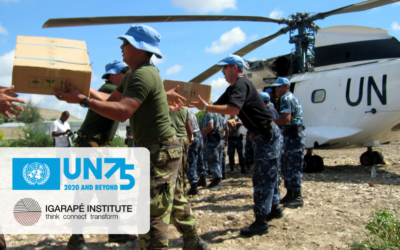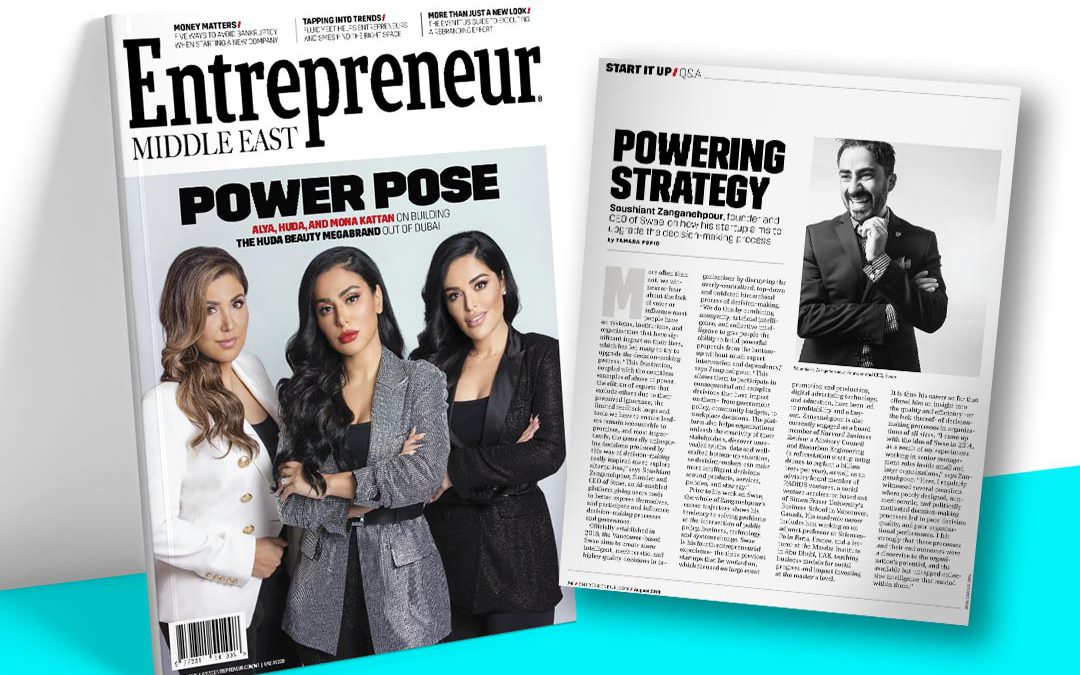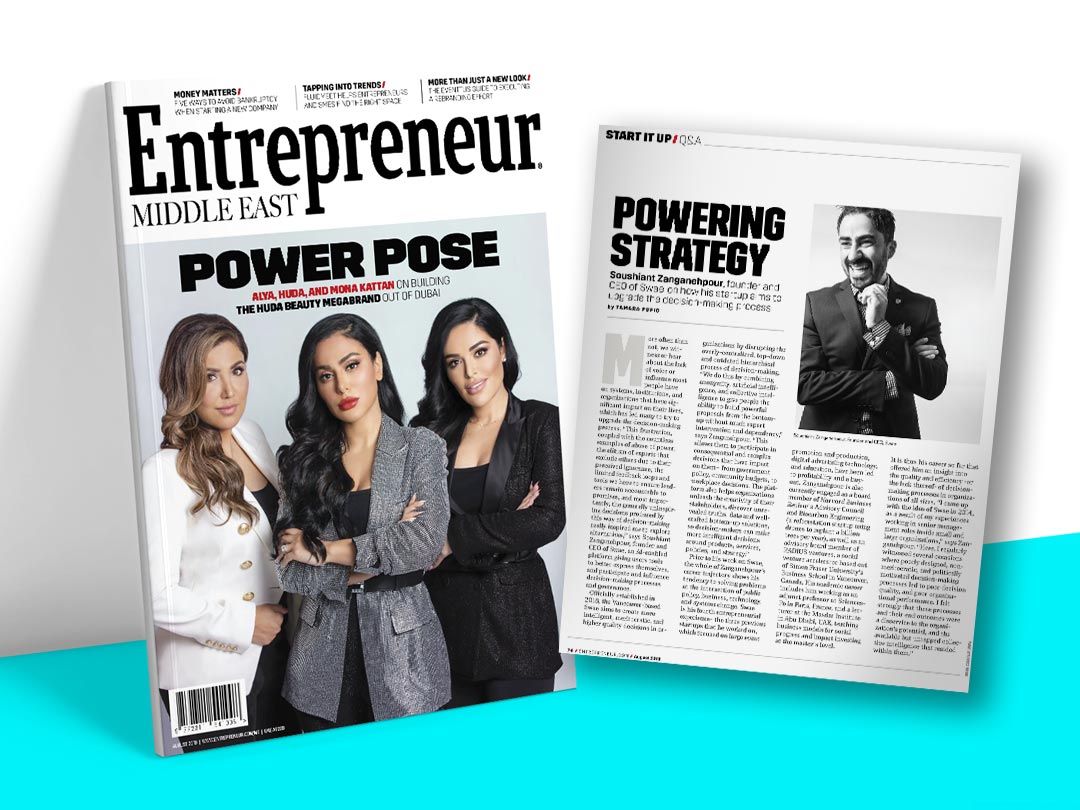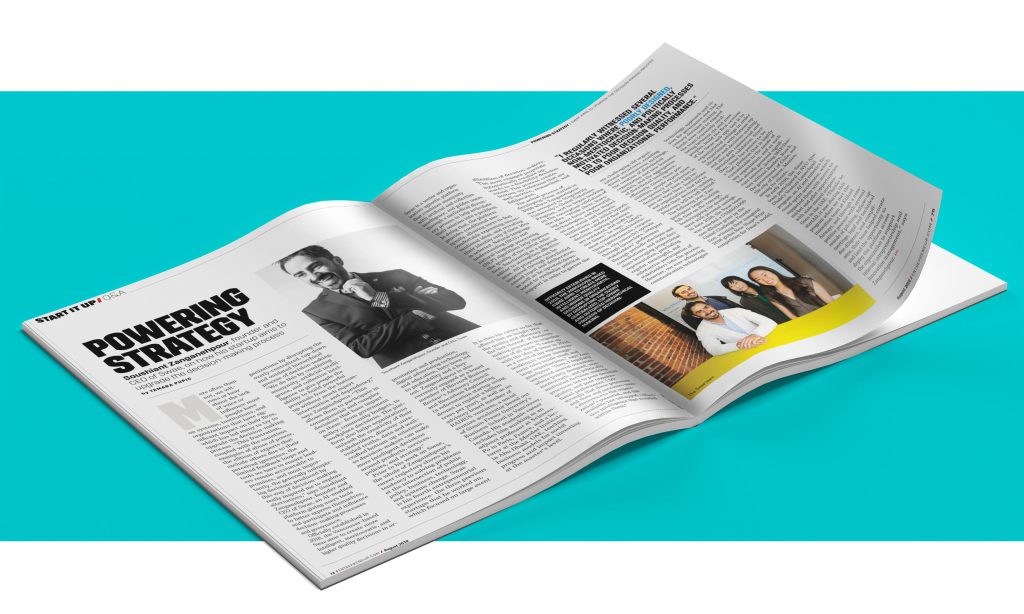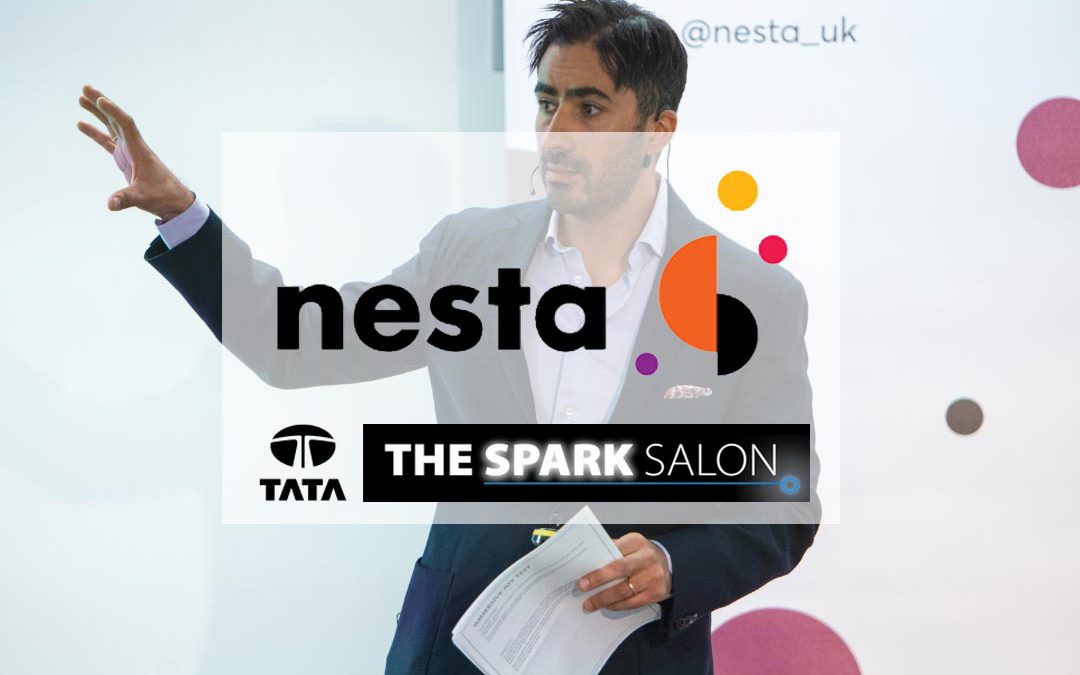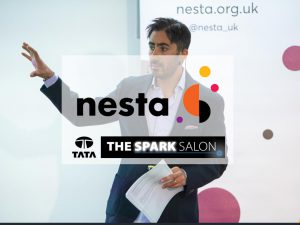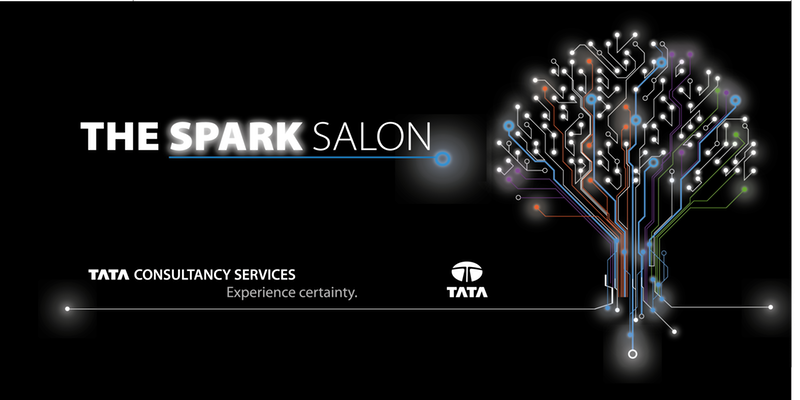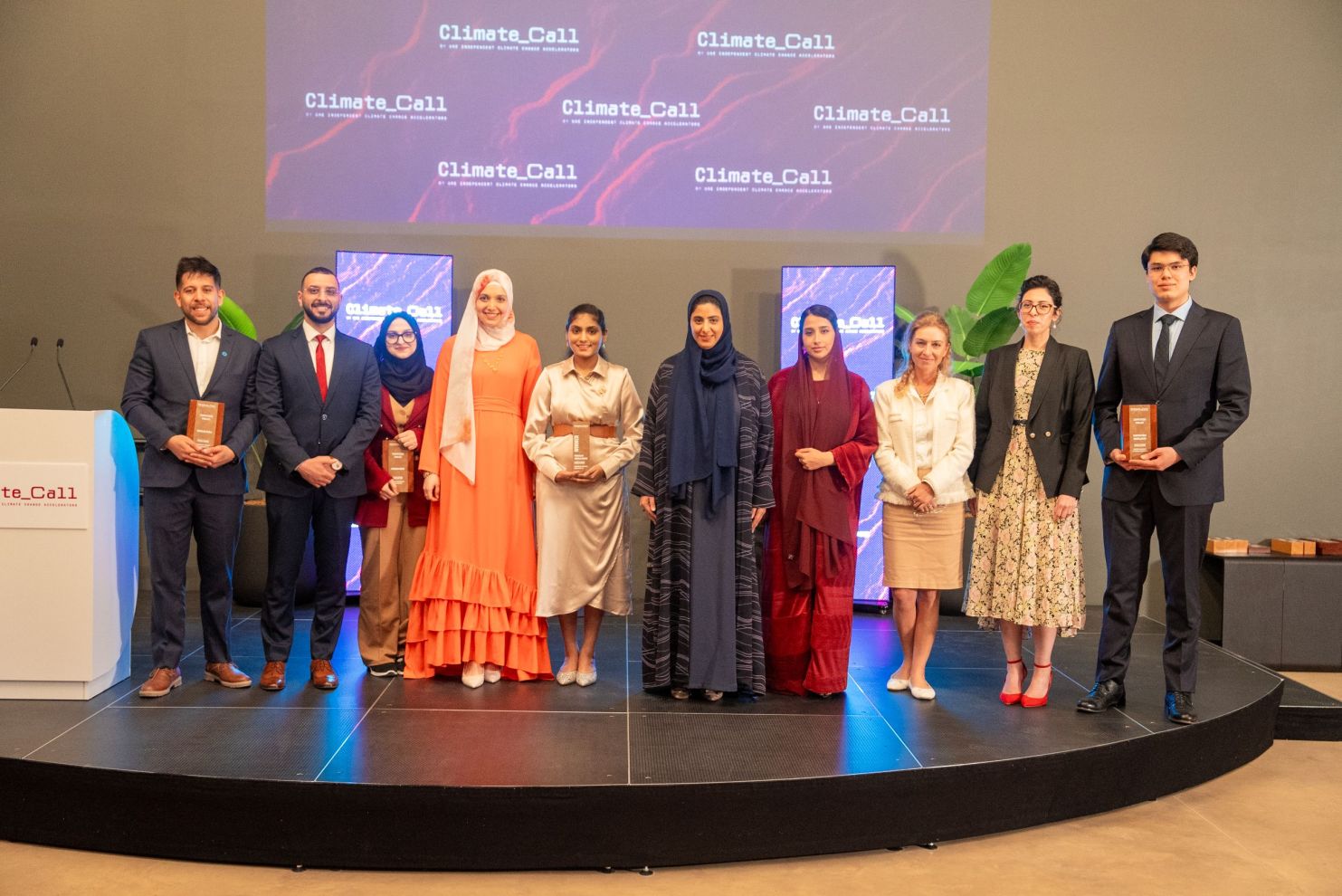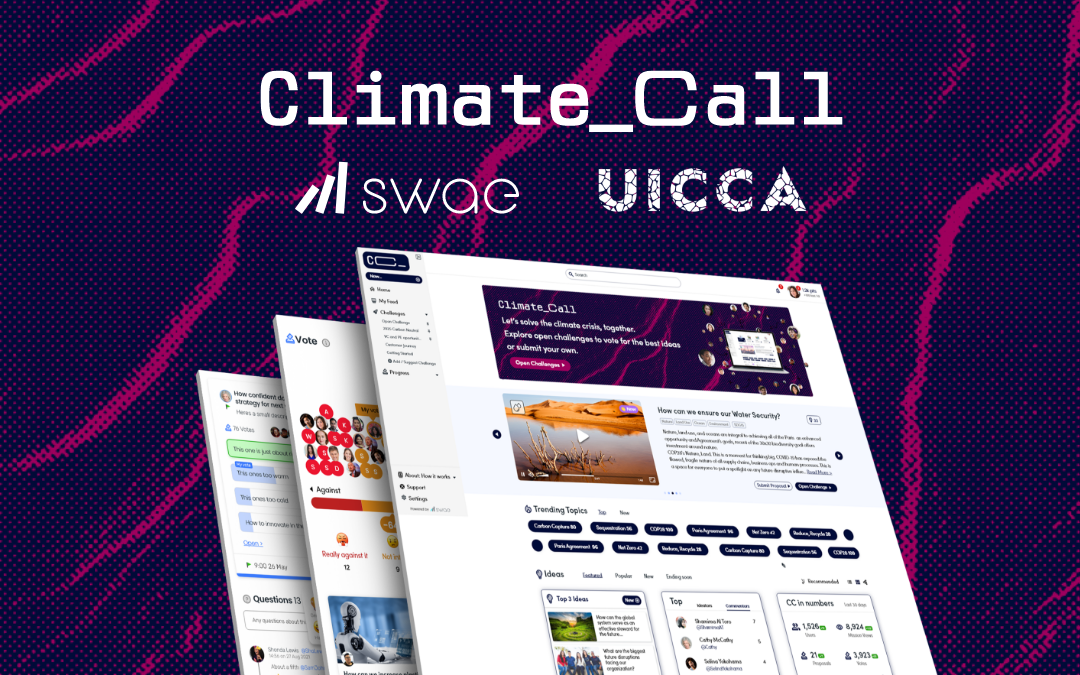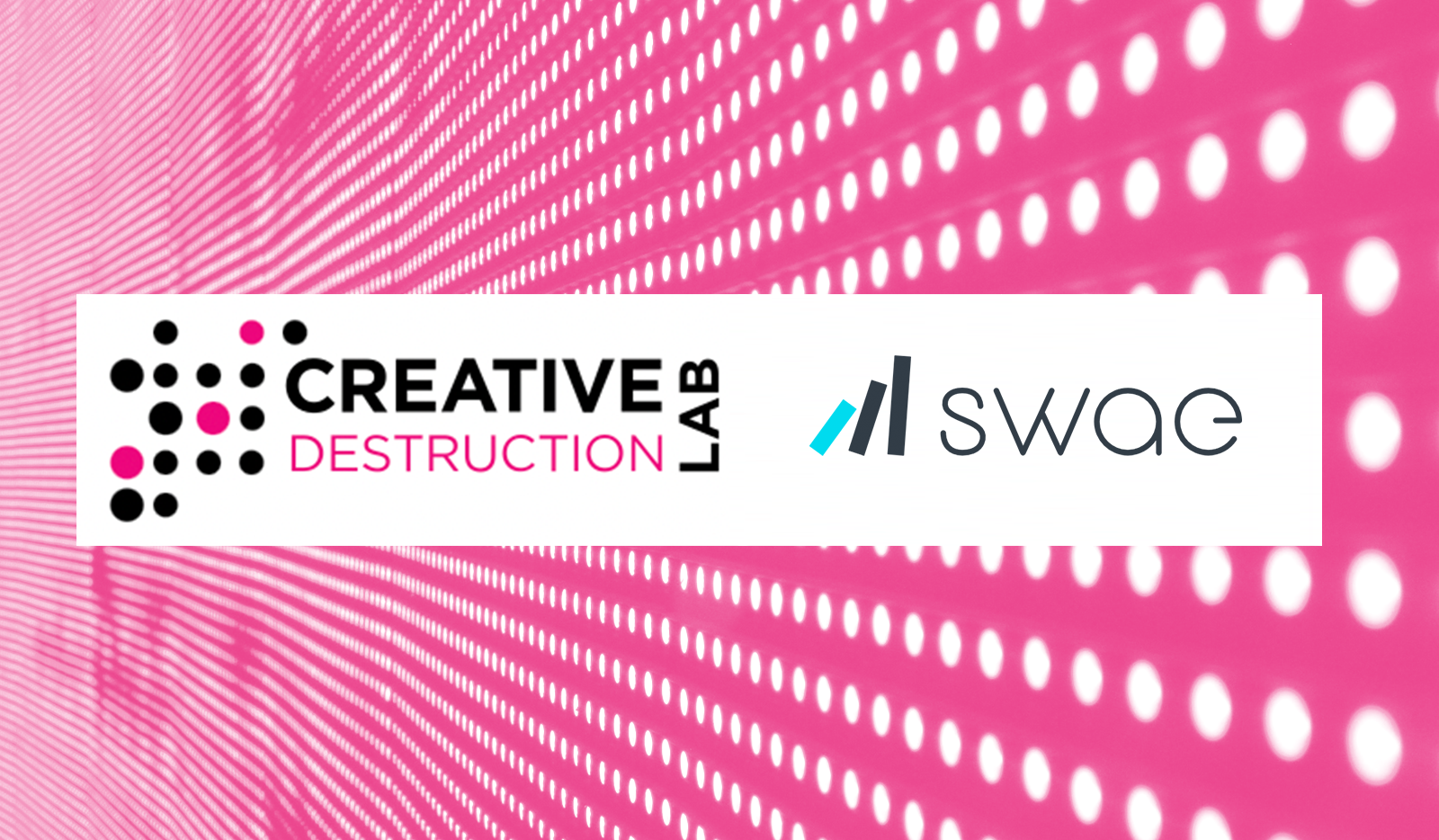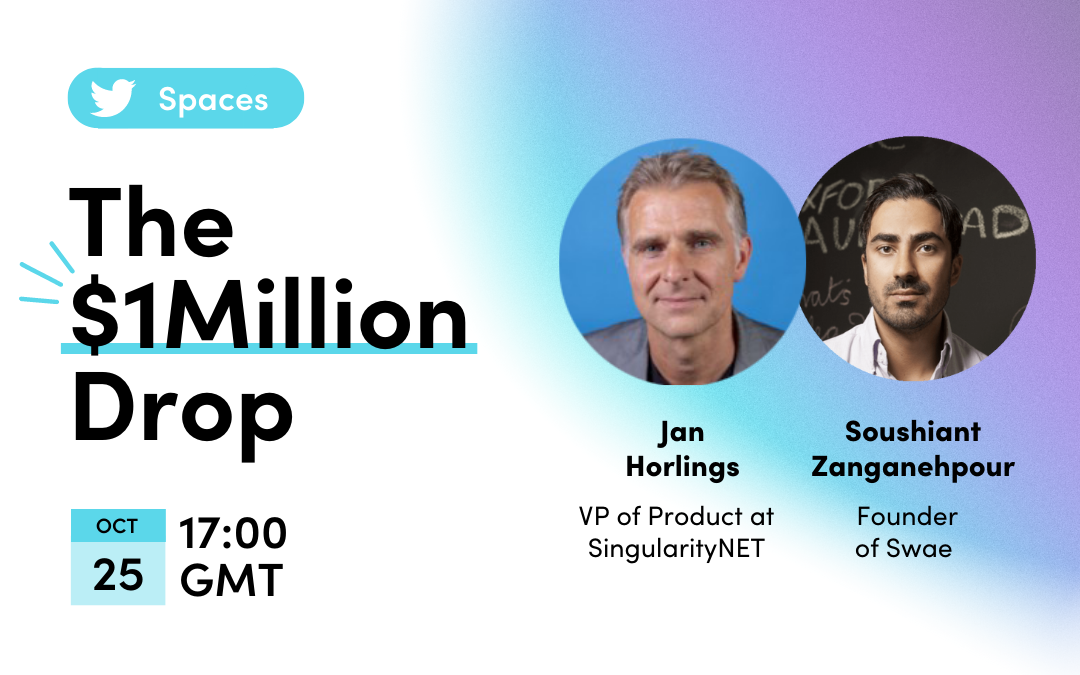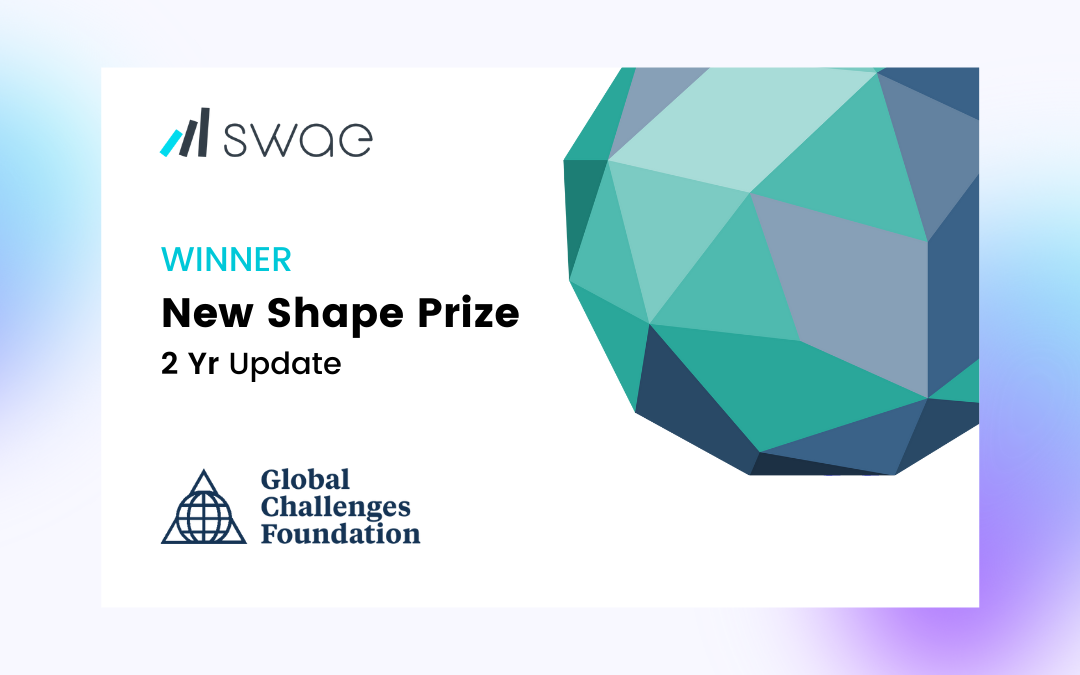
Swae Celebrates the 2-Year Anniversary of Winning the Global Challenges Foundation’s New Shape Prize
Part 1 of 2: Quick Recap on the purpose of the Prize, How We Won, and What We’ve Done Since
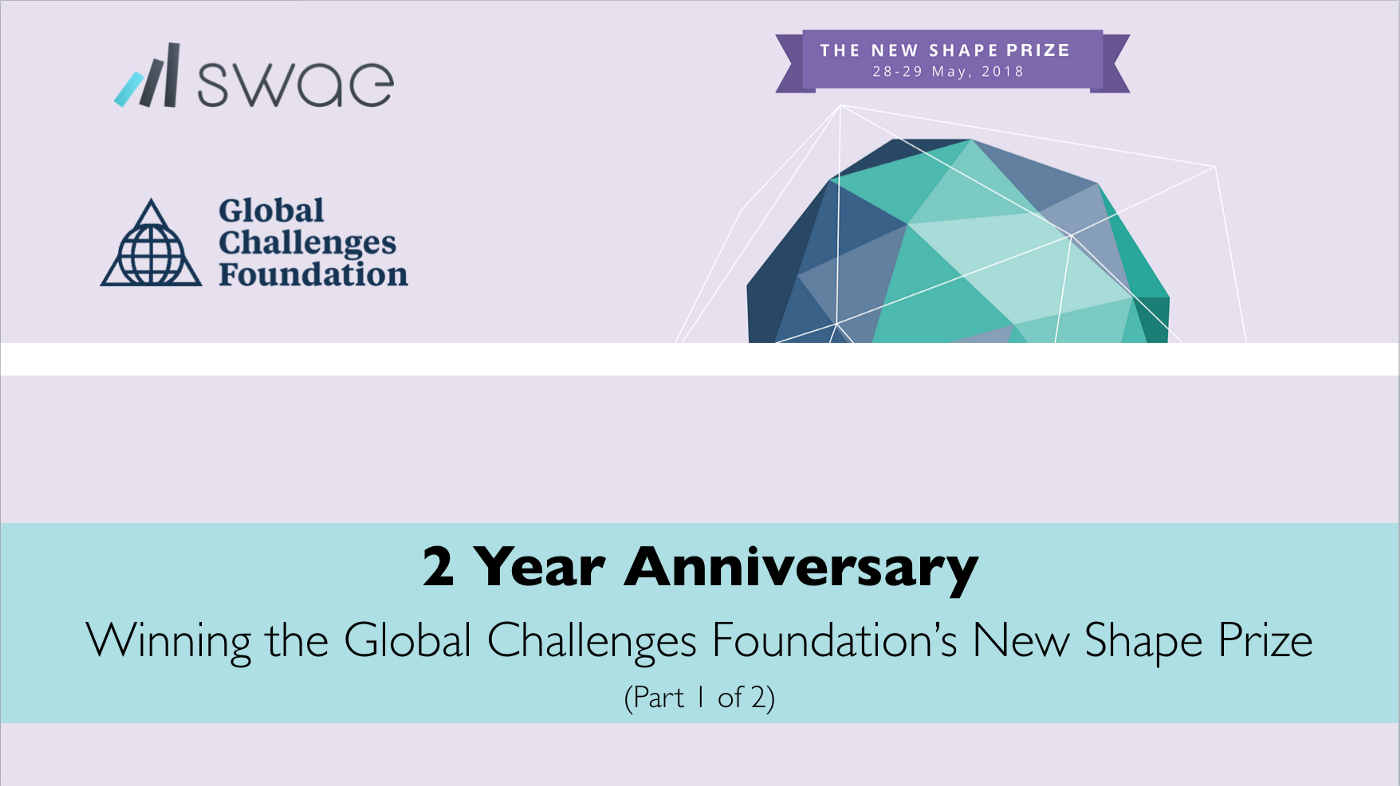
Two years ago almost to this day, The Global Challenges Foundation in Sweden generously awarded Swae as one of three winners of the New Shape Prize (a $600K USD grant amongst 14,000 global applicants) for having a unique and innovative solution to fundamentally improve global governance, decision-making, and our democratic institutions to be more compatible with 21st-century technology, culture and socio-political developments. Our team was incredibly honored and grateful to be given this recognition and it served as an important developmental milestone for us.
Below we share details about the award, our winning pitch, and a summary of how we leveraged the resources to build a working prototype and begin piloting it in real organizational and political environments.
Goals of the New Shape Prize
The New Shape Prize (originally a $5M grant) was generously financed by the Foundation’s benefactor, Mr. Laszlo Szombatfalvy, and designed to inspire ideas and stimulate debate around new, more effective forms of global cooperation at the highest levels about how the world community manages global catastrophic risks, ranging from climate change effects to weapons of mass destruction.
The short 1min explainer video below better describes the New Shape Prize (for those that are unfamiliar with it):
The Problem Swae Identified
Today’s international institutions are poorly suited to building experimental or creative win-win solutions to the problems we face as a globe or a collective species. Consequently, there are dangerous emerging under-managed macro risks stemming from the limitations of our governance structures. Our system is no longer fit for our new age and we need new actors, new operating assumptions, and new norms to help reframe our priorities and uphold humanity-first, and nations second. We need new processes and improved participation methods in order to create new solutions that prioritize and give political weight to ideas that advance humanity, preserve and benefiting all in our species, above a narrow set of national self-interests.
Swae’s Winning Submission
The submission on behalf of Swae proposed the introduction of a technology platform to decentralize global governance to participatory and deliberative models. Using an AI-based collaboration platform (which we were in the early stages of prototyping), we intended to fuel much greater citizen collaboration and ideation around policies and budget suggestions, as the entry point for decentralized and meaningful citizen participation in governance. By using technology and AI for the good, Swae intended to create alternative forms of sovereignty, across the local, national and international spheres, to challenge or complement the authority and sovereignty of nation-states to make decisions about our collective well-being.
Here’s our in-depth proposal “Reinventing Global Governance and Democracy through AI-supported Bottom-up Deliberation”: Download the PDF or View Online.
How we used the award?
Two years really seems to fly by when you’re building a company and trying to democratize democracy! The win was an incredibly important milestone in our journey so far and helped really kick off the growth of Swae through the financial and reputational outcomes of this award.
Immediately upon the win, our startups financial pressures were (temporarily) alleviated, and the news of the award provided validation of and interest in our concept. Because of this, it attracted new interest from angel investors, new potential clients, and a host of enthusiasts (researchers, philosophy and political theorists, documentary film makers, activists, other technology providers, etc.) who had worked on similar ideas or were absolutely thrilled to see a group recommending a non-incremental change to our democratic processes and the management of global affairs. The award, and this relative validation, created pilot opportunities for us to scope out. We were able to grow our user base and much, much more (see more below).
Here’s a shortlist of some of the things that we were able to achieve with this award.
- We got the financial runway to build a MVP of our platform and really move forward in a more progressive manner
- We were able to recruit important members of our core team (CTO and Co-Founder, strong advisors, Marketing Lead, etc.)
- We launched 5 pilot programs and signed our first commercial annual contract
- We were able to grow our user base from 0 to over 15,000+
- Since being able to initially grow the team, we retracted twice given market uncertainties and now we face the latest issues caused by the COVID-19 crisis
Below is our winning pitch and below that we the slide deck that won us the prize.
Click here to see our presentation deck
In part two of this series, we’ll provide a more in-depth look at what we’ve accomplished, learned and struggled with since the win — stay tuned!
And, once again, our sincere thank you goes out to the Global Challenges Foundation for this award!
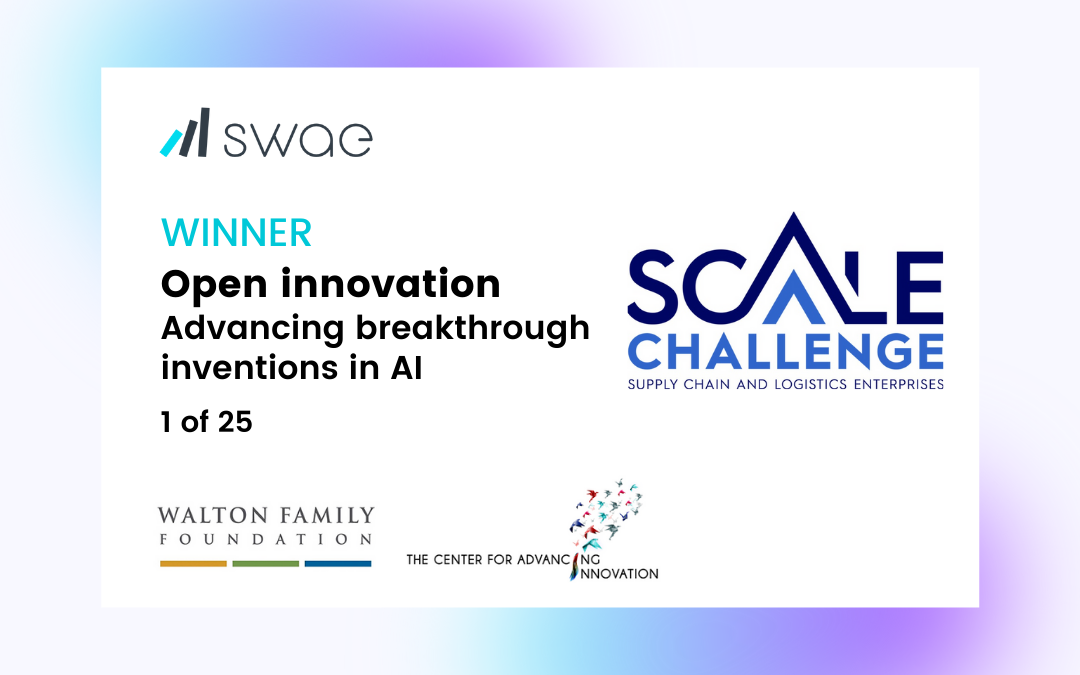
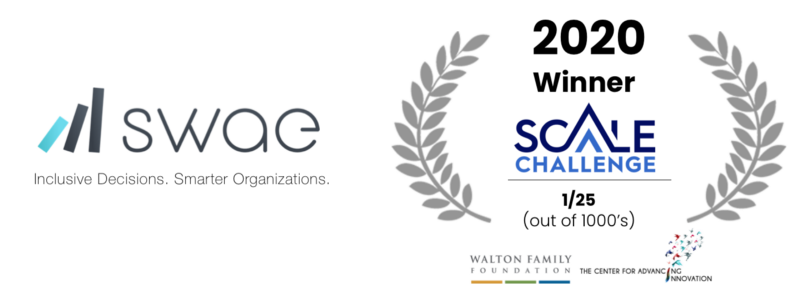
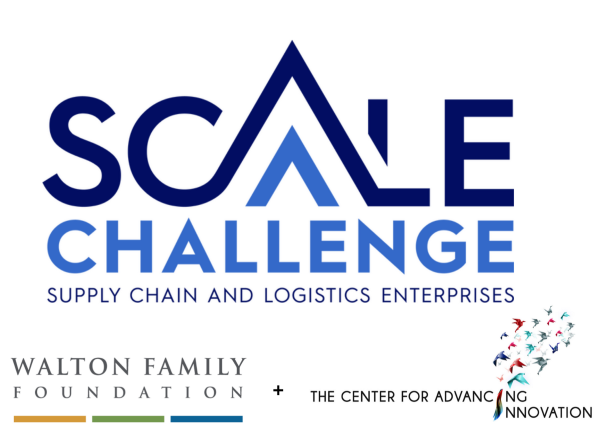
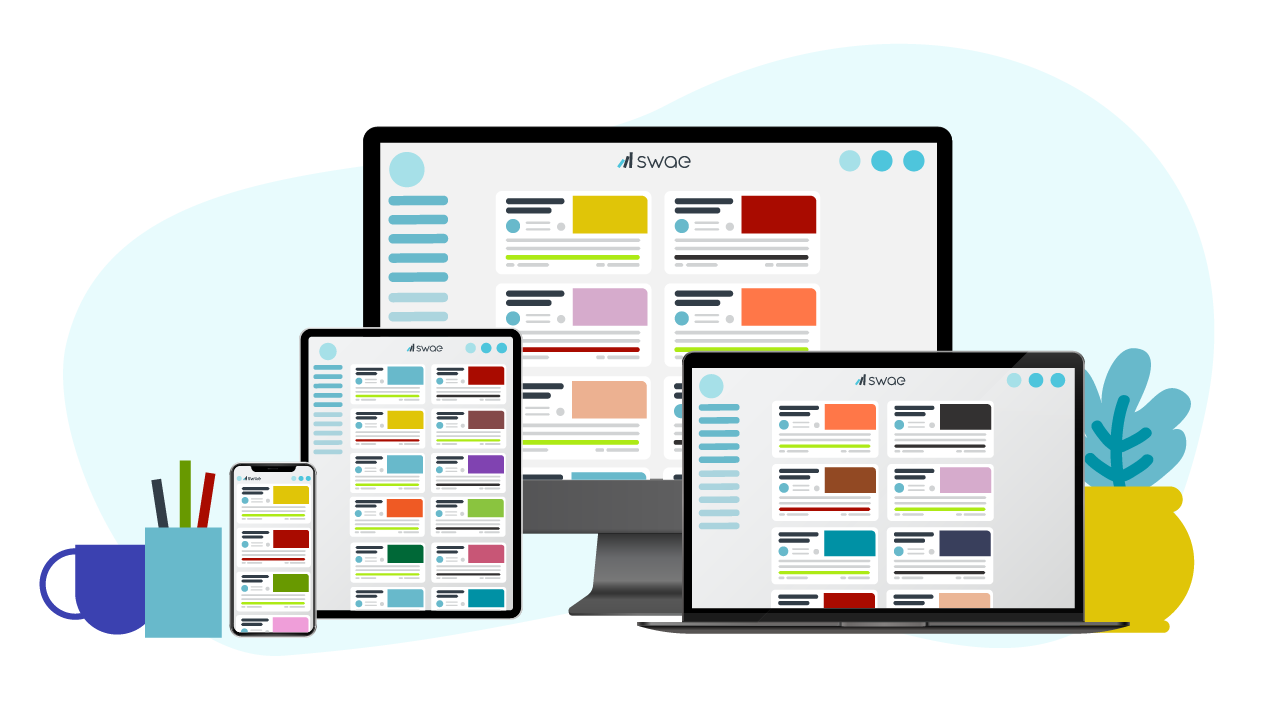
![The Results Are In [Why Investing in Swae Pays Off]](https://swae.io/wp-content/uploads/The-Results-are-in-Investing-in-Swae-pays-off-ROI-400x250.jpg)



